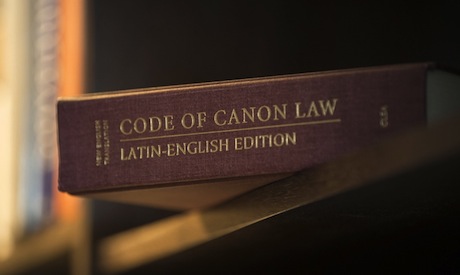The Code of Canon Law is in the process of revision, with the focus particularly on strengthening the section that deals with offences and penalties.
The work is in the hands of Bishop Juan Ignacio Arrieta, secretary of the Pontifical Council for Legislative Texts, who says the current code was drafted in the 1970s, “a period that was a bit naive” in regard to the need for a detailed description of offences, procedures for investigating them and penalties to impose on the guilty.
It reflected a feeling that “we are all good”, says the Spanish bishop, and that “penalties should be applied rarely”.
Because “penal law was not working” in addressing sexual abuse cases, the Congregation for the Doctrine of the Faith, under the leadership of Cardinal Joseph Ratzinger, was obliged to act administratively, Bishop Arrieta said.
He said the sanctions section of the 1983 code was written with such an emphasis on the role of the individual bishop in his local diocese that each bishop bore the full weight of deciding when and how to intervene and what sort of sanction or punishment to impose on the guilty.
The law ended up being too vague, and sanctions were being applied so haphazardly that the Church appeared to be divided, he told Catholic News Service.
The project to revise the section began in 2008. The draft was completed in 2011 and sent to bishops’ conferences and pontifical faculties of canon law, which had a year to respond.
The suggestions were organised and synthesised, and now council officials and consultants — mostly professors of canon law — meet for an afternoon every two weeks to go through them, line by line.
Bishop Arietta said the pontifical council is also looking at ways to speed up the process for evaluating the validity of marriages.
He said it will be at least two years before a new draft is ready to present to Pope Francis. As the church’s chief legislator, it is the Pope who decides whether or not to promulgate it and order that it replace the current law.
Source:
Image: National Catholic Reporter
